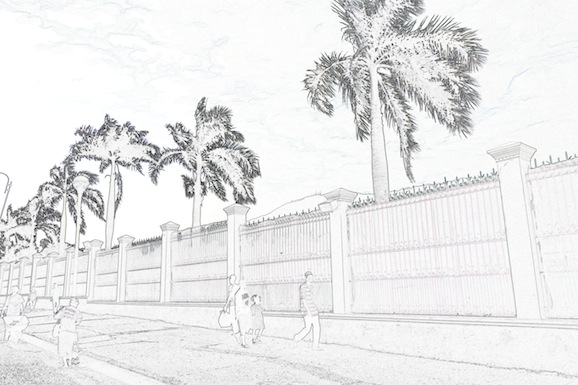By Ilio Durandis
CJ Contributor
FOR THE third time in less than two years, Prime Minister Lamothe has found it necessary to shake things up within his government.
Unlike previous occasions, the decision to replace some ministers and nominate new ones came about through a “so-called” national dialogue, mediated by Haiti’s new Cardinal Chibly Langlois.
The El Rancho Accord, as the agreement from the national dialogue is better known, had a total of fourteen key articles, which all parties involved must abide to, in order for local, municipal, and legislative elections to take place no later than Oct. 26 of this year.
Among the key provisions of the Accord were the amendment of the electoral law, the renaming of the Transitory College of the Provisory Electoral Council (CTCEP) to the Provisory Electoral Council (CEP), and an Open Government, one that can inspire trust to organize the elections, which were supposed to take place at the end of 2011.
Instead, Prime Minister Lamothe decided that by reshuffling his cabinet it would be enough to inspire trust and appease the opposition, which for months has been calling for elections or resignation.
The composition of the new cabinet, which is mainly of people who were already member or affiliated with this government in one form or another, has drawn sharp criticism from those in the opposition.
For example, Evans Paul, the leader of a political party and a participant in the national dialogue, has called this new cabinet a “government of friends” to highlight the exclusion of members of the opposition.
Probably, the biggest surprise was the nomination of Marie Carmelle Jean Marie as Finance Minister, who had resigned from this same post a year ago because of what seems to have been a lack of support for her austerity measures.
In Haiti, it is becoming normal and acceptable to change members of government for the sake of a reshuffle and not in search of concrete results or base on any real evaluation.
If this Haitian government, civil society, and those concerned about finding a solution to this seemingly persistent political instability want to leave behind a legacy of institutions that work and can safeguard the sovereignty of the nation, then they ought to take their job more seriously and engage a more diverse sector of the population in every facet relating to Haiti’s development and progress.
The El Rancho Accord in itself is a very exclusive solution to a deeply rooted crisis.
Not one member of a peasant or youth organization was present in the dialogue. The approach to implement the accord by the involved parties is bound to create more division than to solve any real issue. The Haitian Senate is adamant about not ratifying the amended electoral law, which passed in unanimity in the lower chamber.
This latest cabinet reshuffle seems to have given the nation a government of inner-circle rather than an open one.
Maintaining the status quo at the Justice Department and at other public offices might be interpreted as a sign that the government either is not really interested or does not fully grasp the full scope of what an open government should resemble.
This current government has created its own crisis by refusing to set the right conditions for elections, and with their latest act of opting for a government of exclusion rather than an inclusive one has set the political scene for further disruption.
The Haitian political scene requires a full understanding of the art of denial, as to not confuse illusion with reality.
It is a dangerous political game being played in such a fragile country.
If real trust is not established soon among all the political actors, it would become very difficult to establish all the proper apparatus for fair, just, and democratic elections by the end of this year; and with any perception of a less-than-fair elections, Haiti might have a full-blown crisis that would make the continuity of democratic values all but impossible to maintain.
Haitian politicians need to flip the page from denial to pragmatism and realism. The time is no longer about self-amplification of a droplet of success in an ocean of misery, but rather about zooming on the lack of real progress for the majority of people who are deprived access to real jobs, clean water, sanitation, public health, quality education among other important needs.
Haiti is in need of a government that can bring hope to life, turn promises to tangible actualization and inspire trust in all public institutions.
Ilio Durandis, a Caribbean Journal contributor, is the founder of Haiti 2015, a social movement for a just and prosperous Haiti. He is also a former columnist with The Haitian Times.






